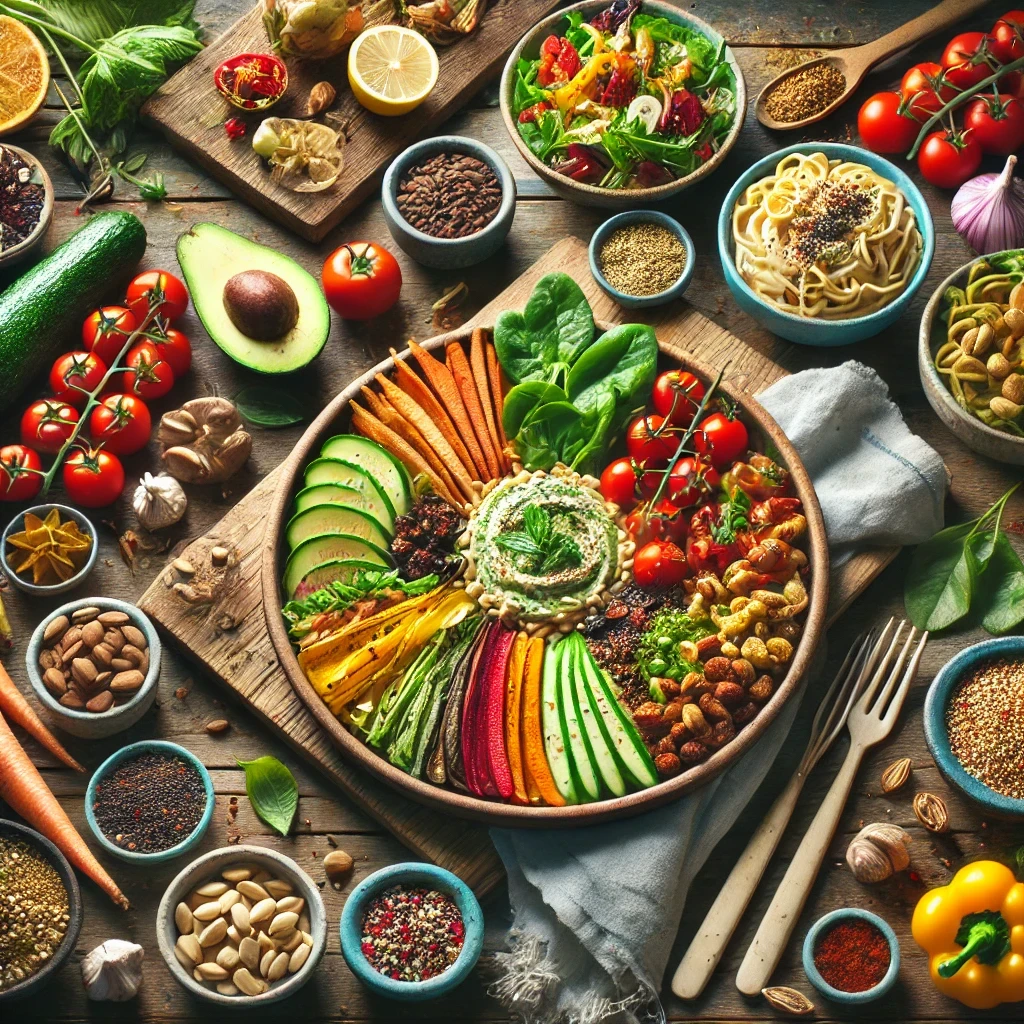Sep 18, 2024
The Benefits of Eating Organic, A Closer Look
Explore the advantages of choosing organic foods. Learn about the environmental.
Introduction:
In recent years, the demand for organic foods has grown as more people become conscious of their health and the environment. But what makes organic foods worth choosing? Are they truly better for you and the planet?
This guide will take a closer look at the benefits of eating organic, examining how organic farming practices impact your health, support sustainability, and contribute to a healthier ecosystem. Whether you're considering a complete shift to organic eating or simply want to make more informed choices, this comprehensive resource will help you understand the value behind organic foods.
Understanding Organic Foods:
Organic foods are grown and processed without synthetic fertilizers, pesticides, genetically modified organisms (GMOs), or artificial additives. The focus is on natural processes that promote ecological balance and conserve biodiversity.
What Makes Food Organic? Certified organic foods must meet strict regulations, including how crops are grown, animals are raised, and products are processed.
The Role of Organic Farming: Organic farming relies on crop rotation, composting, and biological pest control, ensuring healthier soil and less environmental damage.
Common Organic Products: From fruits and vegetables to dairy, meat, and grains, a wide variety of organic options are available to suit different dietary needs.
Health Benefits of Eating Organic:
Choosing organic foods can have several positive effects on your health:
Fewer Pesticides and Chemicals: Organic produce contains fewer pesticide residues, reducing exposure to harmful chemicals linked to health risks.
Higher Nutritional Value: Some studies suggest organic foods may have higher levels of certain nutrients, including antioxidants, which support overall well-being.
No GMOs: Organic foods are GMO-free, appealing to those who prefer natural genetic compositions in their food.
Better for Gut Health: Organic foods are often richer in beneficial bacteria, supporting a healthy gut microbiome.
Hormone and Antibiotic-Free: Organic dairy and meat products come from animals not treated with growth hormones or antibiotics, promoting cleaner food sources.
Environmental Benefits of Organic Farming:
Organic farming practices contribute significantly to a healthier planet:
Sustainable Soil Health: Organic farming nurtures the soil with natural fertilizers, crop rotation, and cover crops, preventing erosion and promoting fertility.
Reduced Pollution: Avoiding synthetic pesticides and fertilizers reduces water contamination and air pollution.
Biodiversity Preservation: Organic farms encourage diverse ecosystems by creating habitats for bees, birds, and beneficial insects.
Lower Carbon Footprint: Organic farming typically uses less energy and produces fewer greenhouse gases compared to conventional methods.
Water Conservation: Organic techniques often use water more efficiently, supporting long-term agricultural sustainability.
Tips for Transitioning to Organic Eating:
Shifting to an organic lifestyle doesn’t have to be overwhelming. Here are practical tips:
Start with the "Dirty Dozen": Prioritize organic versions of fruits and vegetables known to have higher pesticide residues, such as strawberries, spinach, and apples.
Buy in Season: Choose organic produce that’s in season for better prices and freshness.
Shop Locally: Support local farmers' markets, where you can find fresh, organic options while reducing transportation emissions.
Grow Your Own: Consider starting a home garden for herbs, vegetables, and fruits—this guarantees organic freshness right from your backyard.
Read Labels Carefully: Look for certified organic labels to ensure the products meet organic standards.
Addressing Common Misconceptions:
Is Organic Always Healthier? While organic foods often contain fewer chemicals, a balanced diet rich in fruits, vegetables, and whole grains—organic or not—is key.
Is Organic Too Expensive? Though organic options can be pricier, buying in bulk, cooking at home, and shopping smartly can make organic eating more affordable.
Do Organic Foods Taste Better? Many believe organic foods have richer flavors due to the absence of artificial enhancers and the emphasis on soil health.
Conclusion:
Choosing organic foods is more than a dietary decision—it's a lifestyle choice that supports personal health, environmental sustainability, and ethical farming practices. By eating organic, you reduce your exposure to harmful chemicals, enjoy nutrient-rich meals, and contribute to preserving the planet for future generations.
Whether you fully commit to organic living or incorporate organic options gradually, every choice matters. With a better understanding of the benefits of organic foods, you can make informed decisions that align with your values and well-being. Embrace the organic journey and savor the healthful, flavorful rewards it brings.
New Template








